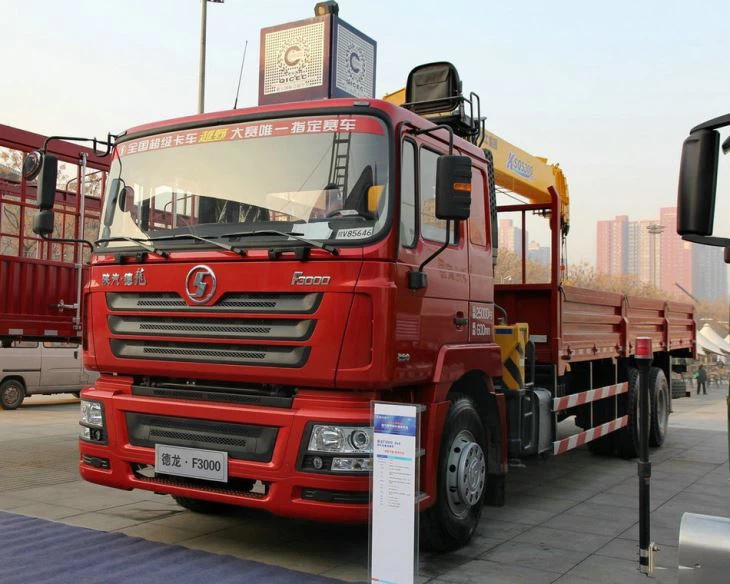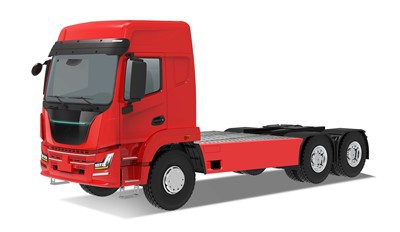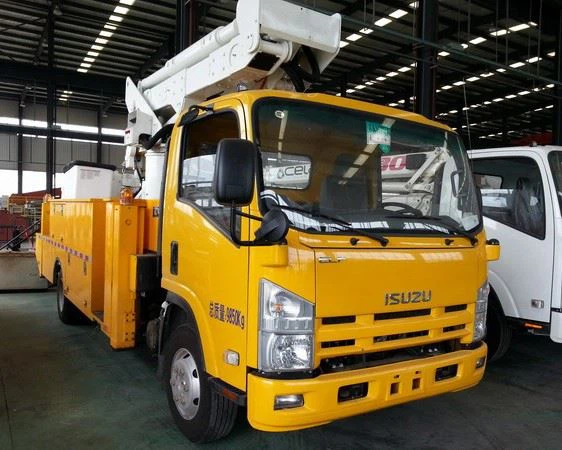Ultimate Guide to Finding the Best Jetter Truck for Sale

Introduction
For plumbing professionals, a jetter truck is an essential piece of equipment that helps in clearing clogged drains and maintaining sewer lines. As industries evolve, the demand for high-quality jetter trucks continues to grow. This article will explore everything you need to know about jetter trucks, including where to find one for sale, the features to look for, maintenance tips, and practical examples of usage. With a comprehensive breakdown of options available in the market, this guide aims to equip you with the knowledge to make an informed decision.
What is a Jetter Truck?
A jetter truck is a specialized vehicle designed to perform high-pressure water jetting. It’s primarily used in plumbing, sewer maintenance, and industrial cleaning. The truck is equipped with a water tank, high-pressure pump, and a hose reel, making it effective for cleaning pipes and drains.
Components of a Jetter Truck

- Water Tank: Stores water needed for jetting.
- High-Pressure Pump: Produces the force required to propel water through the hoses.
- Hose Reel: Houses the high-pressure hoses used in jetting.
- Control Panel: Allows operators to control the speed and pressure during cleaning.
Why Invest in a Jetter Truck?
Investing in a jetter truck can enhance your plumbing business in numerous ways:
Increased Efficiency
Jetter trucks can significantly reduce the time required to clear blockages compared to traditional methods. This efficiency can lead to increased job capacity and revenue.
High Demand for Services
With aging infrastructure and increasing demand for maintenance services, having a jetter truck allows you to tap into a wider customer base.
Types of Jetter Trucks for Sale
When looking for a jetter truck for sale, you may encounter various types suited for different applications:
1. Compact Jetter Trucks
Ideal for urban environments, these trucks are smaller and easily maneuverable, making them perfect for residential plumbing jobs.
2. Standard Jetter Trucks
These trucks have a balanced size and capacity, suitable for both residential and commercial use.
3. Heavy-Duty Jetter Trucks
Designed for industrial applications, heavy-duty jetter trucks can handle large jobs, including municipal sewer maintenance.
Where to Find Jetter Trucks for Sale
Finding the right jetter truck requires some research. Here are some options to consider:
1. Online Marketplaces
- eBay: Offers a variety of used and new models.
- Trucking Websites: Specialized sites only sell heavy-duty vehicles.
2. Local Dealerships
Check with local plumbing equipment dealerships and service centers. They might offer valuable customer support and warranties.
3. Auctions
Consider local or online auctions which often feature well-maintained equipment at competitive prices.

Features to Look for When Buying a Jetter Truck
When shopping for a jetter truck, certain features can greatly impact performance and usability:
1. Pressure Rating
The pressure rating, usually measured in PSI (pounds per square inch), should match your specific requirements. For residential jobs, 3000 PSI is usually sufficient, while commercial jobs may need up to 4000 PSI or more.
2. Water Tank Capacity
Choose a water tank that meets your typical job needs. A larger tank allows for longer cleaning periods without needing to refill.
3. Hose Length
Ensure the hose is long enough to reach various locations. Generally, a hose of at least 200 feet is recommended for most jobs.
4. Trailer vs. Truck Mounted
Determine if you need a truck-mounted unit or a trailer-mounted option based on your business needs and vehicle availability.
Practical Examples of Jetter Truck Use
Here are some scenarios where a jetter truck can provide effective solutions:
1. Residential Drain Cleaning
A homeowner experiences recurring drain blockages. A plumbing service can use a jetter truck to clean out tree roots and grease buildup in the sewer line, restoring flow.
2. Municipal Sewer Maintenance
City maintenance crews use jetter trucks to clean and remove debris from sewer lines and prevent backups, ensuring proper drainage in heavy rain conditions.
3. Industrial Equipment Cleaning
Factories often require regular cleaning of machinery and equipment. A jetter truck equipped with the right attachments can effectively remove grease and contaminants.
Maintenance Tips for Jetter Trucks
Proper maintenance ensures your jetter truck runs efficiently. Here are some key tips:
1. Regular Inspections
Perform routine checks on the pump, hose, and tank. Inspect for leaks or damage that could affect performance.
2. Clean the Nozzles
Clogged nozzles can reduce efficiency. Regularly clean or replace nozzle tips based on their wear and tear.
3. Lubricate Moving Parts

Ensure all moving parts are well-lubricated to prevent wear and increase lifespan.
4. Flush the System
After each job, flush the system with clean water to prevent debris buildup and corrosion.
Cost Considerations When Buying a Jetter Truck
Understanding the costs involved is crucial when purchasing a jetter truck:
1. Purchase Price
New jetter trucks typically range from $40,000 to $100,000, while used vehicles can start as low as $20,000, depending on condition and specifications.
2. Operating Costs
Consider fuel costs, maintenance, insurance, and repairs, which will vary based on usage frequency.
3. Resale Value
Investing in reputable brands can increase resale value. Keep maintenance records to support future resale opportunities.
Financing Options for Jetter Trucks
To ease the financial burden of purchasing a jetter truck, explore the following financing options:
1. Bank Loans
Traditional bank loans offer competitive rates but require a strong credit history and collateral.
2. Equipment Leasing
Leasing allows you to use the truck without the upfront cost, with monthly payments that can be more manageable.
3. Manufacturer Financing
Some manufacturers and dealerships provide direct financing or promotional rates, which can be advantageous if available.
Frequently Asked Questions (FAQ)
1. What is the average lifespan of a jetter truck?
The average lifespan of a jetter truck is around 10 to 15 years, depending on maintenance and frequency of use.
2. How often should I perform maintenance on my jetter truck?
Routine maintenance should be performed after every 100 hours of operation, with more comprehensive checks done annually.
3. Can I use a jetter truck for purposes other than plumbing?
Yes, jetter trucks can be used for various industrial cleaning tasks, including equipment cleaning and degreasing.
4. Are jetter trucks safe to operate?
When operated correctly and with safety protocols in place, jetter trucks are safe. Always follow manufacturer guidelines and local regulations.
5. What should I consider when buying a used jetter truck?
When purchasing a used jetter truck, check its service history, inspect for wear and tear, and ensure that essential components are in good condition.
6. How can I maximize the value of my jetter truck investment?
To maximize value, keep detailed maintenance records, use the truck regularly to prevent deterioration, and stay current with industry best practices.
